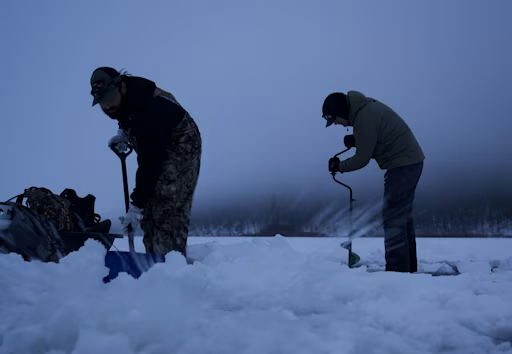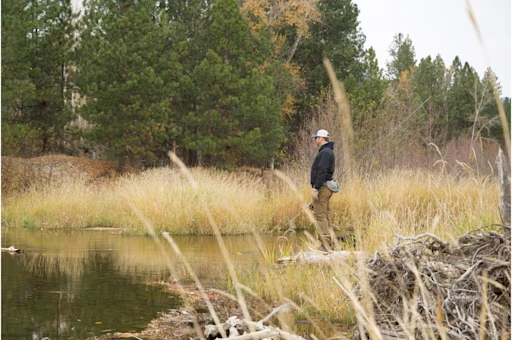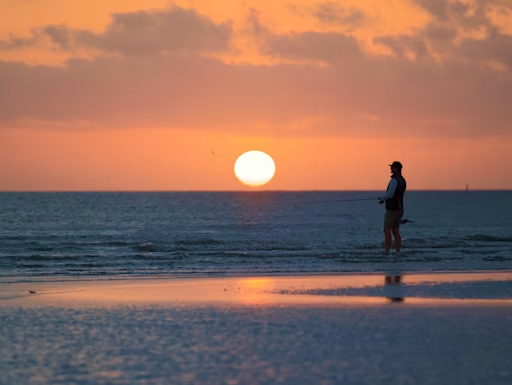4 things I wish I knew before I started bass fishing
Whether you're an experienced angler and reminiscing about your early days, or a new angler looking for some tips, you will love this post containing 4 excellent tips for beginner bass anglers.
Share this article

Have you ever thought back to when you started off in your respective field of expertise? Perhaps you cringed when remembering how BAD you were in your beginning angler days. Maybe you've thought back to that trophy fish you were chasing... and realized - "what the HECK was I doing?! How in the world did I catch that fish with an overhand knot and the worm Nosehooked with an EWG!?" I remember the day I started bass fishing. I took my Uncle's Baitcaster with a 1/4 oz. Texas Rig on, and went down to the Spillway at the dam. I began using the reel like it was a push-button, casting into the rocks with hundreds of thousands of gallons of water blasting out per minute, and then becoming furious that the line got wrapped up in the star drag and my lure got hung up on the first cast! I didn’t even catch any fish. “What an old piece of junk,” I remember thinking. Luckily I knew enough to silently admit that I was doing something wrong and I went home and found a tutorial online. If you are new to Bass fishing, angling in general, or even an expert looking back at a story half as embarrassing as mine, this guide is for you!
Tips for Beginning Bass Fishing
Bass Fishing Tip #1: Keep it Simple! My first two years as an experienced angler came with a LOT of monkeying around with different baits and an obsession with trying to pattern (figuring out what exactly in size, color and lure style at the time) will catch the most Bass every time I went fishing. Then after I taught my two year old son to fish, I came to a big revelation: He would often catch more fish than I would. I tried to reason this away by telling myself, “Well I am his teacher,” or that he was just lucky, etc... but it kept happening. When I took a step back and analyzed what was really going on, another revelation came: I was spending all my time switching lures, while he was casting. Every time I changed lures I was losing out on casts. I always tied him on something small and weedless like a small Texas Rig or Swimbait. Something that was all-purpose and had been proven to catch fish in that spot before. He was catching more fish because he was fishing. Start small and move up in size if the fish are absolutely crushing it. Shut up and fish. Save the complex stuff for when it matters. Thousands of tournaments have been won on sheer number of casts alone. This may be the single most important lesson that I have learned. Bass Fishing Tip #2: Bass are seasonal You or I being tame, comfortable creatures, pay very little heed to the change in seasons most of the time. The humble bass however, must make gigantic changes with every season or pay the ultimate price. I won’t get too in depth with it, but just remember these few things about the seasons and the three phases: Phase 1 - Pre-spawn: Pre-spawn for Largemouth Bass in the temperate northern regions of the US is from the thaw of the ice until “The Bullfrogs begin to croak after the first full Moon,” as the old-timers say, or until the water temperature hits 58+ degrees Fahrenheit for a length of longer than a week or so. There are many exceptions to this rule however and Smallmouth and Spotted Bass will spawn at lower temperatures. During the pre-spawn, especially in the colder months most Bass will retreat to 12+ feet deep within their body of water, however some will stay shallow and some will stay deeper than 6 feet the whole year. Many of the trophy Bass are caught in this season. Don’t neglect it! Phase 2 - Spawn: When the water is right, the Bass will come up shallow to make their “beds” or nests. Nests are usually cleared patches in 1-6 feet of water marked by lighter colors and the addition of stones or objects carried there by the Bass to mark the nest. Females lay eggs for a few days each year and then retreat to offshore structure to recover while the male guards the nest from predators and guide the fry for a couple of weeks. This is the single best opportunity all year to catch a big female so pay attention to your local body of water and fishing reports! There is plenty of information out there about how to fish during the spawn, but remember to ALWAYS practice Catch and Release during the spawn. Phase 3 - Post Spawn: Post spawn is the phase that covers the majority of the year in most places bass live. It begins after the fish spawn and continues until the water temperature drops again below 50 degrees Fahrenheit. During the post spawn, especially in the heat many of the bigger fish are reported to again retreat deep, however most of the trophy bass I have caught came from shallow water during this phase. This phase is different in different parts of the world, depending on distance from the equator but usually wraps up in late fall. You will need to gather relevant information about the phases dependent on where you live, but this can easily be found on the Internet. Bass Fishing Tip #3 - Start Small and get the right gear I inherited most of my initial gear from my uncle, who had a massive collection and an extensive semi-pro career. I ended up with the scraps after everyone else had looted what they wanted. The bad thing was I didn’t get much finesse or light gear. It was all medium heavy+ rods and a bunch of power fishing lures like cranks, etc., which gave me a horribly mismatched start. After a while I began to use light and ultra-light rods and reels with lighter, finesse tackle. It was like night and day. Everything just kind of clicked for me. Being able to fight and control a fish with light line and lower drag instead of horsing (powering) it gave me insight into fishing that I wished I would have started with. I came full circle when I finally started matching my line strength, lures and rods together which is one of the most important hallmarks of an expert to me. So... start small. Get a light or ultra light rod with 6-8 lb. test Fluorocarbon line and tie on a Ned Rig or a Wacky Rig. Set your drag light enough so that you can pull the line out without much difficulty by hand and catch and land a bass like that first. You will catch way more fish like this (although they may be smaller) which is what you want starting off - lots of practice. It’s easy to find a 7’ Medium Heavy do-all rod at your Big-box or Outdoor retailer (in fact sometimes it’s just about all you can find) but you’re likely going to be using the wrong lures on it if you go in without knowledge first, which translates to lots of lost fish, which means frustration and if you’re not enjoying fishing you’re doing it wrong. Bass Fishing Tip #4 - Location, location, location When I first started fishing, I started out at (what I thought was) the biggest, closest body of water I could find. This was a terrible mistake. I not only couldn’t catch anything, I wasn’t even getting bites. As it turns out, there is an old saying that many pro anglers live by that goes, “90% of the Bass live in 10% of the Lake” but this equation grows and shrinks with the SIZE of the body of water you are fishing. So... if you want 100% of the bass to live in 75% of the water for easy catching, then hit up a farm pond, a quarry or really any body of water less than 2 or 3 acres in size. The smaller it is, the better chance you have of catching multiple fish, which again is what you want - practice! I hope this helps the beginners out there and even the old hands. Tight Lines everyone! Don’t forget to check out the Fishbrain Shop for all your Bass Fishing Gear

Download the Fishbrain app and access the best fishing spots in your area
Related blog posts
Discover the best spots, techniques, and gear for successful fishing in urban areas and city waters on Fishbrain.

Master the hardwater season with advanced ice fishing tips . Learn how to find fish faster, refine your search and adjust presentations to catch more fish all winter long.

Your guide to Victoria’s best fish to catch in rivers, lakes, and coastal waters. Learn prime species, fishing tips, and key regulations




